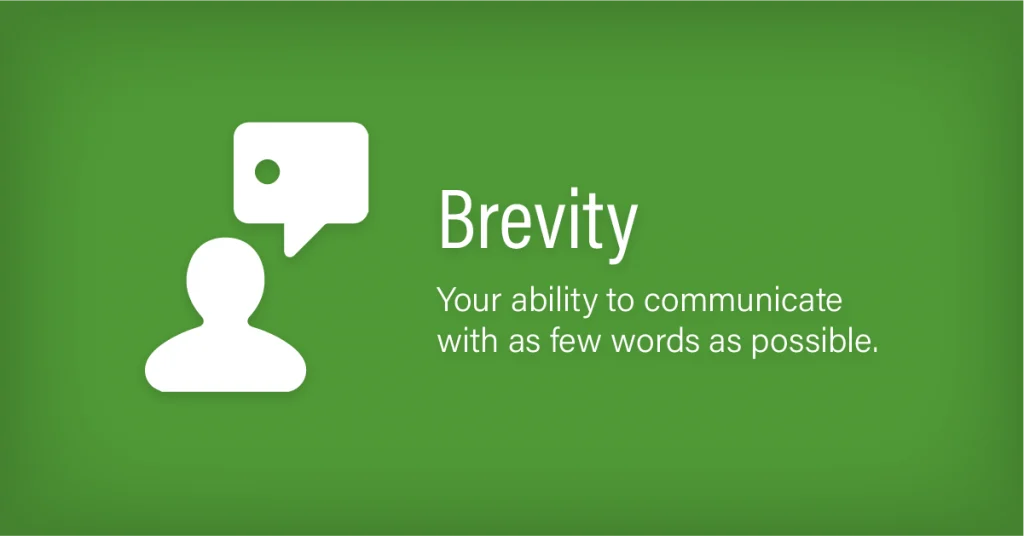8 Types of Business Communication Solutions
Business communication can be a challenge. You want to be clear, but not too blunt. You want to be concise, but not too brief. You also want to make sure you are communicating effectively, which can be difficult when you are dealing with different personalities and communication styles.
Without effective communication, a business will have a hard time succeeding. Here are 8 types of business communication solutions.
1) The basics: what effective communication looks like

There are some basic principles that can help ensure that your communication is clear, concise, and meaningful.
Here are a few tips for better business communication:
1. Make sure your message is clear. When communicating with colleagues or customers, be clear about what you want to say. Don’t leave room for interpretation – make sure your meaning is unambiguous.
2. Keep it brief. In today’s fast-paced business world, time is precious. Keep your communication concise and to the point. No one wants to wade through pages of text or listen to a rambling speech. Get to the point and say what you need to say as efficiently as possible.
3. Choose the right medium. Before you communicate, it s important to consider your audience. If the message is sensitive or confidential, then choose a secure medium like a phone call or face-to-face meeting.
2) Listening: the most important business communication skills

In order to be a good communicator, it is essential to be a good listener. Listening is the most important, not only in business communication solutions but also in everyday life. Because, without it, we cannot fully understand the message that someone is trying to communicate. There are a few things you can do to become a better listener:
1) Pay attention: This seems obvious, but it can be difficult to really pay attention when someone is talking, especially if you’re not interested in what they have to say. Try your best to focus on the speaker and what they’re saying.
2) Don’t interrupt: It can be tempting to want to jump in and share your own thoughts when someone else is talking but resist the urge. Let the person finish what they’re saying before you start talking.
3) Show your interest If you’re a good listener, the speaker will feel more comfortable talking to you. You can show your interest by nodding or making other gestures that indicate that you’re paying attention.
3) Clarity: make sure your message is clear

When it comes to business communication solutions, clarity is key. Make sure your message is clear by using simple language and avoiding jargon. Be concise and to the point. Get straight to the point and avoid beating around the bush.
Be clear about what you want or need from your listener. Lastly, make sure your body language is saying what you want it to say. Nonverbal cues can be just as important as the words you use.
4) Respect the other person’s time and attention

It’s important to be respectful of the other person’s time and attention when you’re communicating with them, whether it’s in a business setting or not. That means being on time for meetings and calls, and it also means being clear and concise when you’re sharing information.
If you take the time to show that you value the other person’s time, it’ll go a long way in building a strong relationship.
5) Brevity: keep it short and sweet

In our fast-paced, constantly-connected world, it’s more important than ever to be able to communicate clearly and concisely. That’s where brevity comes in.
Brevity is the quality of being brief or concise. In business communication skills, brevity can be achieved by using simple language, avoiding unnecessary details, and making sure your message is clear and to the point.
Here are a few tips for communicating more concisely:
- Use simple language. This will help ensure that your message is clear and easy to understand.
- Avoid unnecessary details. Stick to the most important points and leave out anything that isn’t essential.
- Make sure your message is clear and to the point. Be as specific as possible so that there’s no room for misinterpretation.
- Keep an eye on your word count.
6) Tone: be aware of your tone of voice and choice of words

The way you say something is just important in a system of business communication. The tone of your voice and the words you choose can make a big difference in how your message is received. Here are a few tips for making sure your tone is always professional and appropriate:
1. Avoid using overly casual or informal language. Even if you’re communicating with someone you know well, it’s important to maintain a certain level of professionalism. This means avoiding slang, abbreviations, and contractions as much as possible.
2. Be aware of the tone of your voice. If you’re angry or upset about something, it will likely come through in your voice, regardless of the words you use. Try to stay calm and focused when communicating with others, even if the conversation is heated.
3. Choose your words carefully. If you’re communicating in writing, consider the tone of your words as you compose them. If your message is sarcastic or insulting, it’s likely that your tone will be perceived as such even if the words themselves are not.
6) Body language: watch your nonverbal cues

Your body language communicates much more than you might think. In fact, research has shown that body language makes up a whopping 55% of how we communicate, while 38% is the tone of our voice and only 7% is the actual words we use
This is why it’s so important to be aware of your nonverbal cues when communicating in a business setting. Here are six tips to help you make sure your body language is working for you:
1. When speaking to someone, making eye contact conveys confidence, interest, and sincerity. Avoiding eye contact, on the other hand, can make you seem disinterested or insincere. If you find it difficult to maintain eye contact, try focusing on the person’s eyebrows or forehead instead of their eyes.
2. Use open body language Open body language is when you use your arms and legs to make yourself appear bigger, more approachable, and more confident. This includes spreading your legs, uncrossing them, standing with feet shoulder-width apart, and maintaining good posture.
3. Smile Smiling is another great way to appear more confident. It s hard to smile when you’re nervous, but if you force yourself to do it, it will come more naturally.
4. Use your whole body Your body is a powerful tool, and you can use it to express confidence in yourself and your ideas. Make direct eye contact, smile, use open body language, keep yourself upright and maintain a good posture.
5. Pay attention to how you speak When you’re nervous, your voice will change in pitch and tone. It may become high-pitched and squeaky. This can make you seem weak. Practice speaking in a deeper, more confident voice.
7) Encourage questions or feedback

In order to encourage questions or feedback, this system of business communication should make itself available to employees and clients.
This means creating an environment where people feel comfortable asking questions or offering feedback.
Additionally, business communicators should be clear and concise when communicating messages. This will help ensure that people understand what is being said and feel confident enough to ask questions or offer feedback.
8) Ask a question to ensure they understand what you said

In order to ensure that your colleagues understand what you are saying, it is important to ask questions. This shows that you are interested in their understanding and also allows you to gauge whether they have grasped the information. Here are some tips for asking questions:
- Make sure your question is relevant to the conversation.
- Ask open-ended questions rather than yes/no questions.
- Avoid asking leading questions.
- Listen carefully to the answer and follow up with another question if necessary.
Conclusion: Business Communication Skills

When it comes to business communication skills, there are a few key things to keep in mind. First and foremost, remember to be clear and concise in your communication. Secondly, make sure you are constantly aware of your audience and how they will receive your message. Lastly, always be prepared to follow up after you’ve communicated with someone.
Keeping these things in mind will help you to improve your business communication skills. However, don’t forget that practice makes perfect. The more you communicate with others, the better you will become at it.
Great communication can help you close sales effectively. Hope you get it. If you enjoy this article, please do me a favor to share it with others. I’d appreciate it. Please leave me feedback if you have something to say.




